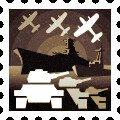Инсталирайте Steam
вход
|
език
Опростен китайски (简体中文)
Традиционен китайски (繁體中文)
Японски (日本語)
Корейски (한국어)
Тайландски (ไทย)
Чешки (Čeština)
Датски (Dansk)
Немски (Deutsch)
Английски (English)
Испански — Испания (Español — España)
Испански — Латинска Америка (Español — Latinoamérica)
Гръцки (Ελληνικά)
Френски (Français)
Италиански (Italiano)
Индонезийски (Bahasa Indonesia)
Унгарски (Magyar)
Холандски (Nederlands)
Норвежки (Norsk)
Полски (Polski)
Португалски (Português)
Бразилски португалски (Português — Brasil)
Румънски (Română)
Руски (Русский)
Финландски (Suomi)
Шведски (Svenska)
Турски (Türkçe)
Виетнамски (Tiếng Việt)
Украински (Українська)
Докладване на проблем с превода


 Boquete, Chiriqui, Panama
Boquete, Chiriqui, Panama 










































Rust was more than just a game to me; it was a sanctuary. Vlkn and I built something special together—hours spent gathering resources, defending our base, and dreaming of bigger victories. One night, I trusted him with our loot while I took a break. When I returned, I found everything gone. Vlkn had betrayed me, leaving only a cold message: “Sorry, but I needed this more than you.”
The emptiness I felt wasn’t just from losing virtual items but from losing a friendship I thought was genuine. It was a harsh lesson in trust and heartache. Rebuilding was tough, but the real pain came from the betrayal that turned a beloved game into a reminder of lost trust.
───▄▄██▌█ TOOT TOOT
▄▄▄▌▐██ gay porn delivery
███████▌█▄▄▄▄▄▄▄▄▄▄▄▄▄▄▄▄▄▄▄▄▄▄▄▄▄▄▄▌
▀(@)▀▀▀▀▀▀▀(@)(@)▀▀▀▀▀▀▀▀▀▀▀▀▀▀▀▀▀(@)▀